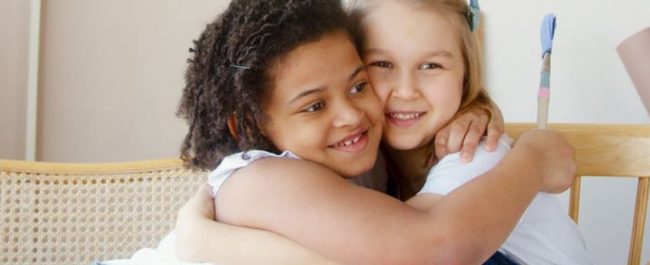Ideas for Teaching Oral Health to Preschoolers
Kids in preschool are the perfect age to start learning about their teeth and how to take charge of their oral health. While remembering the names of every tooth and knowing exactly what foods are great for mouth health might be too much information to expect them to take in and hold onto, there are many other things you can teach kids.
Helping them learn the importance of brushing and flossing while exploring teeth and dentists can help set preschoolers up for a lifetime of good mouth health.
Great learning starts with good mouth health
It may seem unrelated, but students who have poor mouth health are more likely to miss class time as they grow older. Helping parents teach kids the importance of taking care of their teeth can lead to better school performance and overall, better oral health as they get older.
You don’t have to be a parent or teacher to make a difference in the lives of children. Kids are predisposed to look up to and want to learn from the adults around them, so making an effort no matter how small can make a big difference.
Use some of these activities to help kids in your life learn about their mouth and how to keep it clean.
If you’re in Oakville, Burlington or nearby please call Reflections Dental Oakville for great advice on children’s oral health care and book your visit!
Conduct some science experiments
Using different beverages like water, fruit juice and pop along with whole eggs can simulate the effects of the drinks on tooth enamel providing a visible result that kids can see.
Bring in a guest teacher
For some reason it seems like students tend to pay closer attention to the lesson when someone new and exciting is presenting it, so calling in some guest teachers to speak to your students can help them really engage. Host a local dentist or dental hygienist to give a lesson on teeth brushing, the effects of eating foods that are good and bad for teeth or even to show off what an Xray of their teeth looks like can help encourage young kids to take care of their oral health.
Paint with a toothbrush
Incorporate clean toothbrushes into art class to help kids to learn how to use them. Seeing and feeling how the toothbrush moves paint to cover an area can help kids understand how to move the toothbrush in order to spread toothpaste.
Read a book
Dr Suess has a great book called ‘The Tooth Book’ that uses his typical captivating and rhyming writing style to captivate kids and leave them with a lasting lesson.
Take a field trip
Planning a fieldtrip to sit in a dentist’s chair and check out what kind of tools they use on teeth can help kids feel more comfortable getting their teeth cleaned.
Practice with a toothbrush and floss
Using an egg carton, students can practice using floss and a toothbrush by treating the bottom of the carton as teeth. Take things a step further by labelling each tooth on the egg cartons and discussing the names and locations of each tooth in their own mouths.
Make a mouth
During art class provide students with a sheet of construction paper with a large oval drawn on, with small circles around the inner rim of the oval. Guide kids to glue marshmallows to each circle to signify teeth inside a mouth.
Paint a tooth
Allow students to get messy by painting a tooth on construction paper. You can provide pages with a tooth already drawn on for them to fill in, or teach them how to draw it themselves depending on the age of the class. While they paint you can chat with them about what good oral health means, and other tooth related information.
Clean their toys
Roll a toy dinosaur, animal or car in glitter then have kids use a toothbrush and water to try to clean off the glitter. This can help kids learn just how much brushing matters when it comes to cleaning particles off of a surface like their teeth.
Get on the path to great oral health early
With some ideas in hand for your preschooler, you’re set to pick a few that your child may have fun doing – and get learning. After all, a healthy mouth is a happy mouth (and one that requires less restorative maintenance in the future!).


